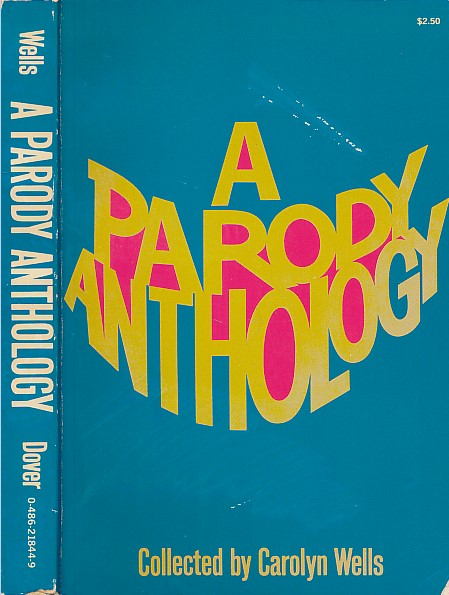A Parody Anthology
Izvorna cijena bila je: €4,00.€3,00Trenutna cijena je: €3,00.
Na zalihi
| Težina | 501 g |
|---|---|
| Format | 14 × 20 cm |
| Autor | |
| Izdavač | |
| Mjesto izdanja | New York |
| Godina | 1967 |
| Broj stranica | 389 |
| Uvez | Meki |
| Stanje knjige | Vrlo dobro |
Example in this ebookThe fact that parody has been ably defended by many of the world’s best minds proves that it is an offensive measure, at least from some viewpoints. But an analysis of the arguments for and against seems to show that parody is a true and legitimate branch of art, whose appreciation depends upon the mental bias of the individual.To enjoy parody, one must have an intense sense of the humorous and a humorous sense of the intense; and this, of course, presupposes a mental attitude of wide tolerance and liberal judgments.Parodies are not for those who cannot understand that parody is not necessarily ridicule. Like most other forms of literature, unless the intent of the writer be thoroughly understood and appreciated, the work is of little value to the reader.The defenders of parody have sometimes endeavored to prove that it has an instructive value, and that it has acted as a reforming influence against mannerisms and other glaring defects. One enthusiastic partisan confidently It may gently admonish the best and most established writer, when, from haste, from carelessness, from over-confidence, he is in danger of forfeiting his reputation; it may gently lead the tyro, while there is yet time, from the wrong into the right path. But this ethical air-castle is rudely shattered by facts, for what established writer ever changed his characteristic effects as a result of the parodies upon his works, or what tyro was ever parodied?It has been said, too, that a good parody makes us love the original work better; but this statement seems to lack satisfactory proof except, perhaps, on the principle that a good parody may lead us to know the original work more thoroughly.Perhaps the farthest fetched argument of the zealous advocates of the moral virtues of parody is found in Lord Jeffrey’s review of the well-known Rejected Addresses, where he says, The imitation lets us more completely into the secret of the original author, and enables us to understand far more clearly in what the peculiarity of his manner consists than most of us would ever have done without this assistance. If this be true at all, it is exemplified in very few instances, and is one of the least of the minor reasons for the existence of a parody.The main intent of the vast majority of parodies is simply to amuse; but to amuse intelligently and cleverly. This aim is quite high enough, and is in no way strengthened or improved by the bolstering up qualities of avowed virtuous influences.The requirements of the best parody are in a general way simply the requirements of the best literature of any sort; but, specifically, the true parodist requires an exact mental balance, a fine sense of proportion and relative values, good-humor, refinement, and unerring taste. Self-control and self-restraint are also needed; a parodist may go to the very edge, but he must not fall over.The fact that poor parodies outnumber the good ones in the ratio of about ten to one (which is not an unusual percentage in any branch of literature), is because a wide and generous sense of humor is so rarely found in combination with the somewhat circumscribed quality of good taste. It is, therefore, on account of the abuse of parody, and not the use of it, that a defence of the art has been found necessary.The parody has the sanction of antiquity, and though its absolute origin is uncertain, and various Fathers of Parody have been named, it is safe to assume that it began with the Greeks. The Romans, too, indulged in it, and its continuance has been traced all through the Middle Ages; but these ancient parodies, however acceptable in their time, are of little interest to us now, save as heirlooms.
